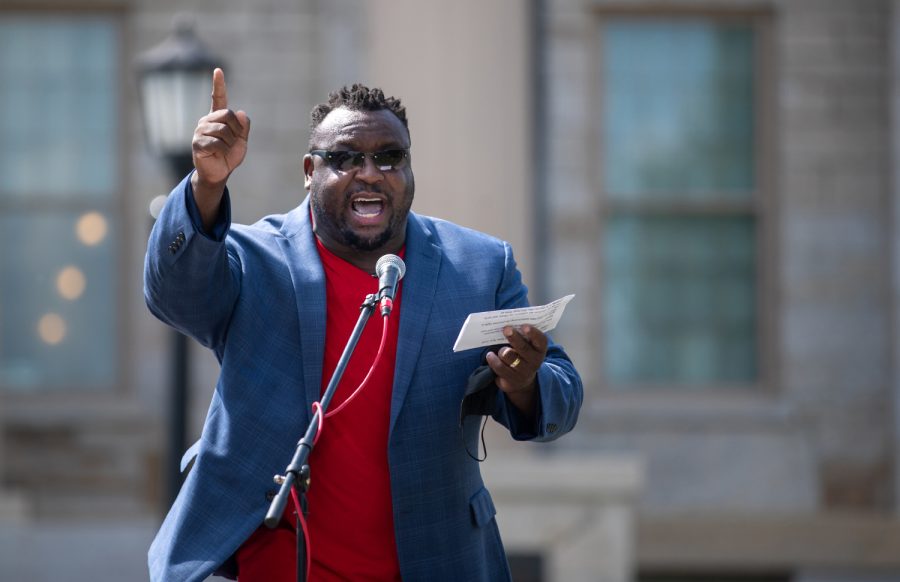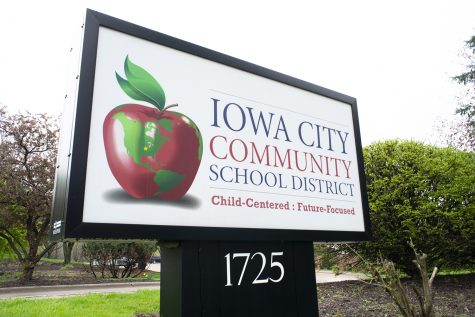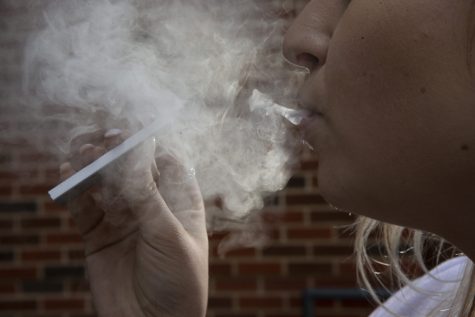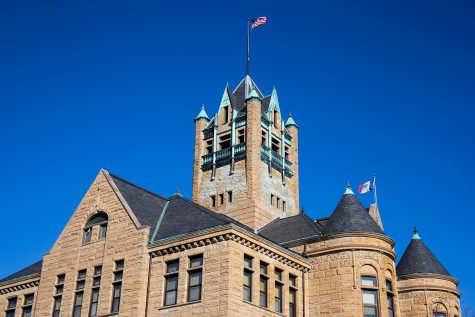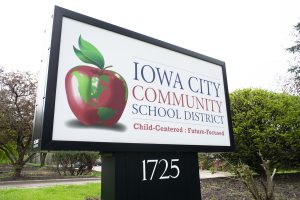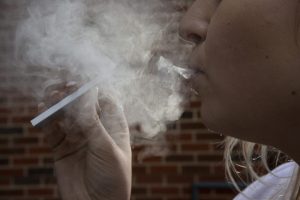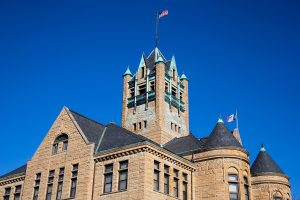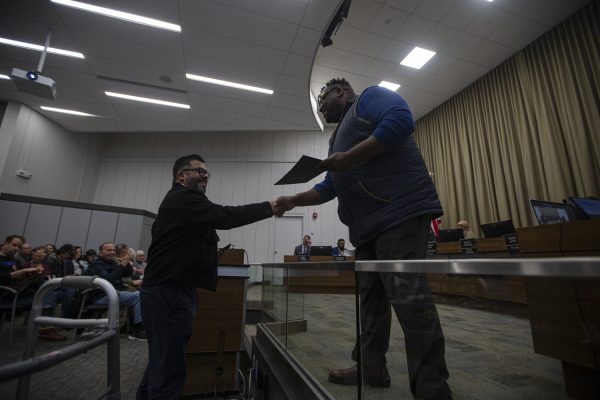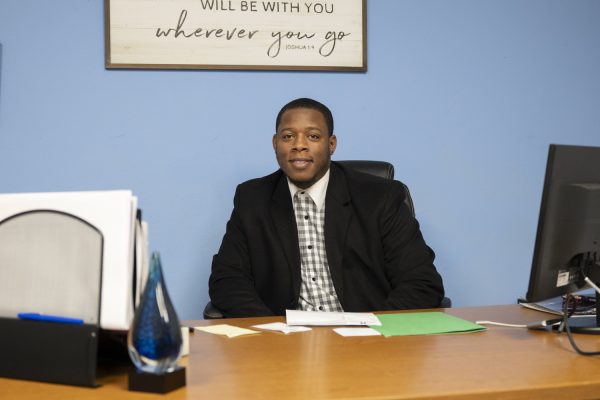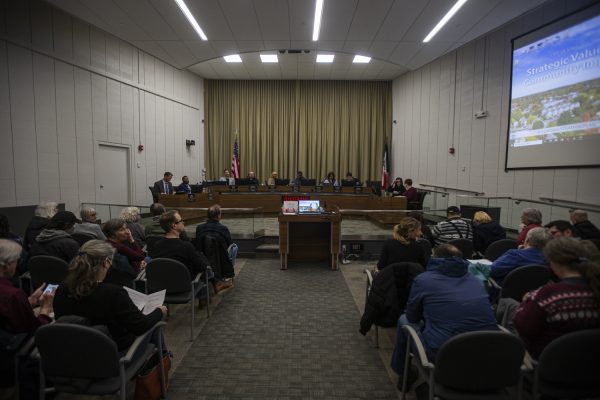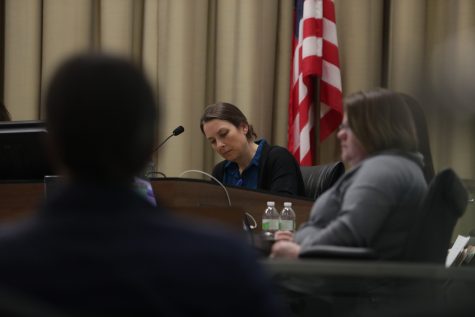Black Iowans look to provide diverse perspectives in local government
A high number of Black Iowans looking to increase diverse perspectives are running for seats on school boards, city councils, and mayoral positions in this fall’s election, including two candidates in Iowa City.
Iowa City Mayor Bruce Teague encourages people to vote during a rally for voting rights at the Pentacrest on Saturday, Aug. 28, 2021.
October 24, 2021
As topics such as critical race theory, policing, and racial equity come to the forefront in city and school elections, a number of Black politicians from across Iowa are running for office this fall, seeking to add diverse perspectives to local governments on Nov. 2.
A June 2020 Pew Research Center Survey shows that 68 percent of Americans say working with Black people elected into office is effective for groups and organizations who are working to achieve equality.
Iowa City Community School District Board of Directors Vice President Ruthina Malone, who is up for reelection on the board, said it is important to bring Black and Brown people’s voices to the table in government discussions.
“It helps us to keep things honest and real, [and] it helps us stay focused on some of the issues that minority communities face,” Malone said. “Sometimes it’s difficult to have that conversation when everybody at the table are non-minorities, so they can’t bring that point of view to the table.”
Malone said Black, Indigenous, and people of color frequently feel comfortable addressing their experiences with a community leader they identify with.
“So having that person at the table actually opens up access and doors for other people that we serve,” Malone said.
Iowa City Mayor Bruce Teague, who is running for reelection to the Iowa City City Council, said as of now, the council will only have one member that is a person of color.
Mayor pro-tem Mazahir Salih is not seeking reelection. Teague is Iowa City’s second Black mayor.
As a Black and gay man, Teague explained the significance of lived experiences of those in marginalized communities, as well as the insight provided by those perspectives being represented in government.
“For all of the individuals that are Black that are running within our state, I think that it is critical that those communities look to ensure that those voices of lived experience are represented by being elected,” Teague said.
Breaking barriers within governmental leadership is not without its difficulty or strain on mental health. Black community leaders often face threats, including Iowa Democratic Party Chair and the first Black person to hold the position, Ross Wilburn, who recently received lynching threats after criticizing former President Donald Trump in a column for the Des Moines Register.
Malone said she has also received personal attacks and threats during her term.
“Unfortunately, it’s been my experience that there’s a lot of personal attacks, and sometimes the attacks can sort of trickle down to your spouse and your workplace, or maybe even your children,” Malone said. “So you have to be in a good place, not only with your family, but mentally, because some of the things people say to you can be just downright disgusting and cruel.”
Justyn Lewis, an at-large candidate for the Des Moines City Council said that, while Des Moines is a diverse area, the city’s political representation is not, limiting advocacy opportunities for marginalized communities.
“Our city council members are all an average age of 70, and they’re all white. So that leads them susceptible of blind spots and misrepresenting or underrepresenting people,” Lewis said. “What’s nice about electing leaders is you really want to elect folks that have the makeup of the city so that you can get that perspective from other community groups … and not lean on your own understanding.”
According to a 2019 study from the Pew Research Center, Black Americans made up around 14 percent of the U.S. population. Adding Black voices and diverse points of views to positions of power is needed to accurately represent diverse communities, Lewis said.
“America is very diverse, and we need leaders that look like America so we can have those perspectives when we’re making decisions,” Lewis said. “We can’t just lean on one perspective anymore.”



